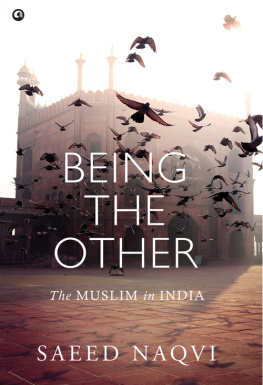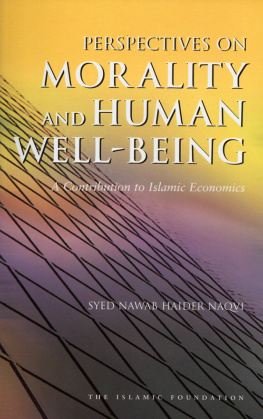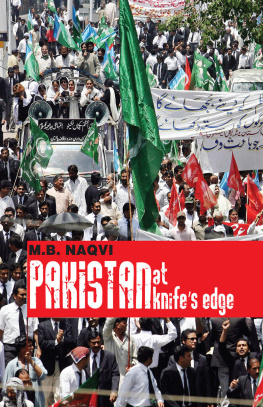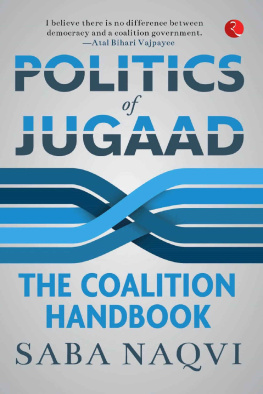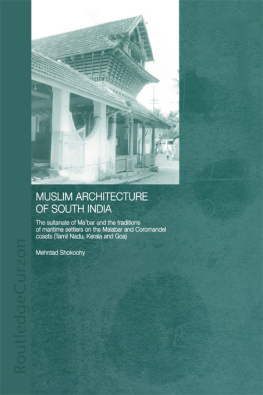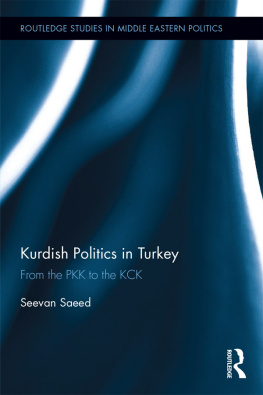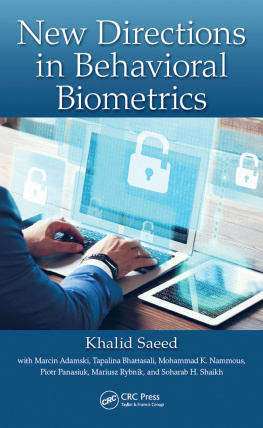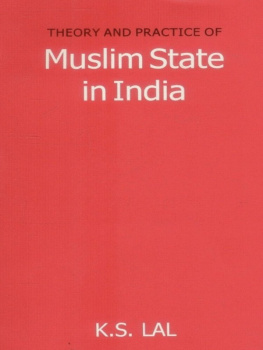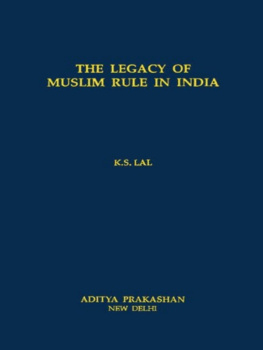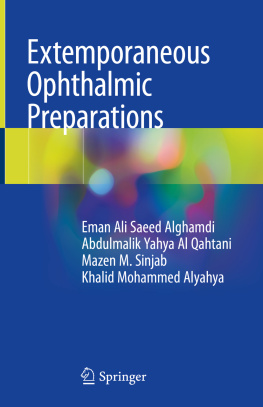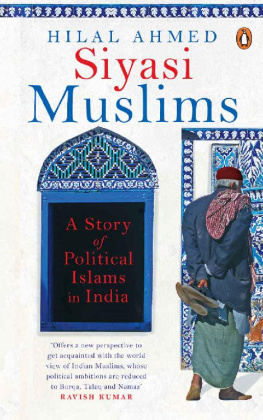Also by Saeed Naqvi
The Last Brahmin Prime Minister (1996)
Reflections of an Indian Muslim (1993)
ALEPH BOOK COMPANY
An independent publishing firm
promoted by Rupa Publications India
First published in India in 2016 by
Aleph Book Company
7/16 Ansari Road, Daryaganj
New Delhi 110 002
Copyright Saeed Naqvi 2016
All rights reserved.
The views and opinions expressed in this book are the authors own and the facts are as reported by him/her which have been verified to the extent possible, and the publishers are not in any way liable for the same.
While every effort has been made to trace copyright holders and obtain permission, this has not been possible in all cases; any omissions brought to our attention will be remedied in future editions.
No part of this publication may be reproduced, transmitted, or stored in a retrieval system, in any form or by any means, without permission in writing from Aleph Book Company.
eISBN: 978-93-84067-76-2
This book is sold subject to the condition that it shall not, by way of trade or otherwise, be lent, resold, hired out, or otherwise circulated without the publishers prior consent in any form of binding or cover other than that in which it is published.
For Aruna, always
Contents
Introduction
This book, which had been germinating in me for nearly six decades, first came into focus because of an act of betrayal. On 9 November 1989, my mother Atia Naqvi, wife Aruna, daughter Zeba and I drove down to Ayodhya to watch the shilanyas ceremony. Bricks to build a Ram Temple where the Babri Masjid stood were being consecrated. As we watched the rituals, the violent kar sevaks, I grew increasingly despondent. Even though the Babri Masjid still stood, I knew that it was only a matter of time before it would be brought down. And with its fall, the whole charade of secularism and protestations that all was well with our countrys politics and attitudes towards minorities, especially Muslims, would come to be seen for what it was. As an Indian Muslim who loved his country and was fully invested in it, I felt betrayed. And angry, because it could all have been so different.
I was born and brought up in Awadh, in the heart of the Hindi heartland, a land of exquisite culture and creativity. Most of all, it was a region where lines between Hindu and Muslim (despite the best efforts of the colonial ruler) were seldom drawn, and where syncretism was a way of life. (I describe all this in the first two chapters of the book. It is also where I discuss the first signs of disharmony between the communities that began to show up as Independence neared.) However, from the time the subcontinent was partitioned, an alarming phenomenon began to manifest itself in the country. There had been periods of conflict between Hindus and Muslims, usually at the behest of whichever ruler was the most powerful during the period in question, but this was the first time that a systematic Othering of Muslims started taking place. Much of the time it was by design, at other times it was because of the bungling of political and religious leaders, but the result was the samethe minorities, especially Muslims, became increasingly alienated and insecure. Both the Congress, which was in power for the majority of the period since Independence, and the BJP were responsible for this phenomenon to a greater or lesser degree. Those who profited the most from the phenomenon were hard-core Hindu fundamentalists, who felt that it would only be a matter of time before they achieved the Hindu Rashtra that had been denied them at Independence by Indias far-sighted founding fathers, who, unlike Muhammad Ali Jinnah who secured an Islamic state for his countrymen, refused to pander to sectarian demands. But as the founding fathers passed on, and as new political realities began to emergethe Othering of Indias Muslims began, alarmingly, to proceed apace.

The Oxford Dictionary defines the Other as that which is distinct from, different from, or opposite to something or oneself. In the late twentieth century, the Palestinian scholar Edward Said analysed this phenomenon. From this issued his seminal work, Orientalism , on the affiliation of knowledge and power. This is how the West created an image of the East as the Other. The supremacist ideology of imperialism is structured on this platform. Looked at through this lens, it helps us see how, in India, an entire community, which comprises over 14 per cent of the total population, has come to be seen as the Other, as something exotic, backward, uncivilized, even dangerous.

When I began writing this book I intended it to be a memoir. However, in its final form, a part of it is a procession of images, scratches on my mind. The rest of it comprises my observations and eyewitness accounts of various seminal events in contemporary Indian history that have had a bearing on Muslims. Being the Other is also a lament for the vanished syncretic HinduMuslim culture, especially in that crucible of tolerance, the qasbah of Mustafabad near Lucknow, where I grew up. Ours was a Muslim home. But the cultural derivatives of the Islam we lived were set against a broad Hindu civilizational framework. It was not something we talked about. It was something we lived.
I have had an eventful life, rich with experiences gleaned from this country and a hundred other countries. In that sense, I am the other within the Other. I was fortunate in that the liberal, secular outlook gifted to me by my environment turned out to my advantage. In 1966, Pran Chopra, the first Indian editor of The Statesman and the papers political correspondent, Inder Malhotra, sent me as special correspondent to Jaipur when I was still in my twenties. They were not Hindus with marks on their forehead; I was not a Muslim wearing the elder brothers outsized shirt and the younger brothers pyjamas that dangled above the ankles. We grew out of different faiths but had a common social meeting ground. This was the early promise of Nehruvianism. It was soon to be belied.
Not only was my career as a journalist not adversely affected by Partition, but I found myself cruising ahead of my competitors. The Punjabi Hindu found my Urdu background attractive. In 1977, Ramnath Goenka, despite his right-wing Hindu leanings, appointed me the principal political reporter of his newspaper, the Indian Express . In time, I would go on to become the editor of the six southern editions of the newspaper. In other words, I have never had the experience of tens of millions of Muslims in this countryof being treated with suspicion and disfavour because of my faith. In a way, that has helped me, if anything, to see the reality of the situation clearly and even objectively.
As I have said, the deliberate Othering of the Indian Muslim that would have long-term repercussions first took shape in 1947: after all, the decision to divide the subcontinent on religious lines was inherently communal. Muslims were all given the option to go to Pakistan by a specified period1956. Many senior Muslim civil servants, officers in the police and the armed forces proceeded to Karachi, the initial capital of Pakistan, to help the new country stand on its feet. Many stayed on in India because it appeared to them to be tolerant and they didnt feel under threat. It didnt take long for Muslims who had stayed on in India to realize that they were being treated differently. Politicians, officials and a largely Hindu police force would work progressively against them, decade after decade, especially in communally charged situations.




